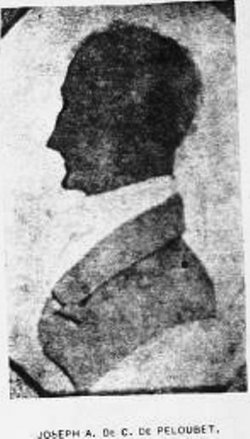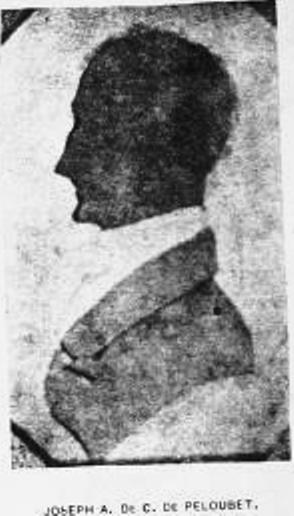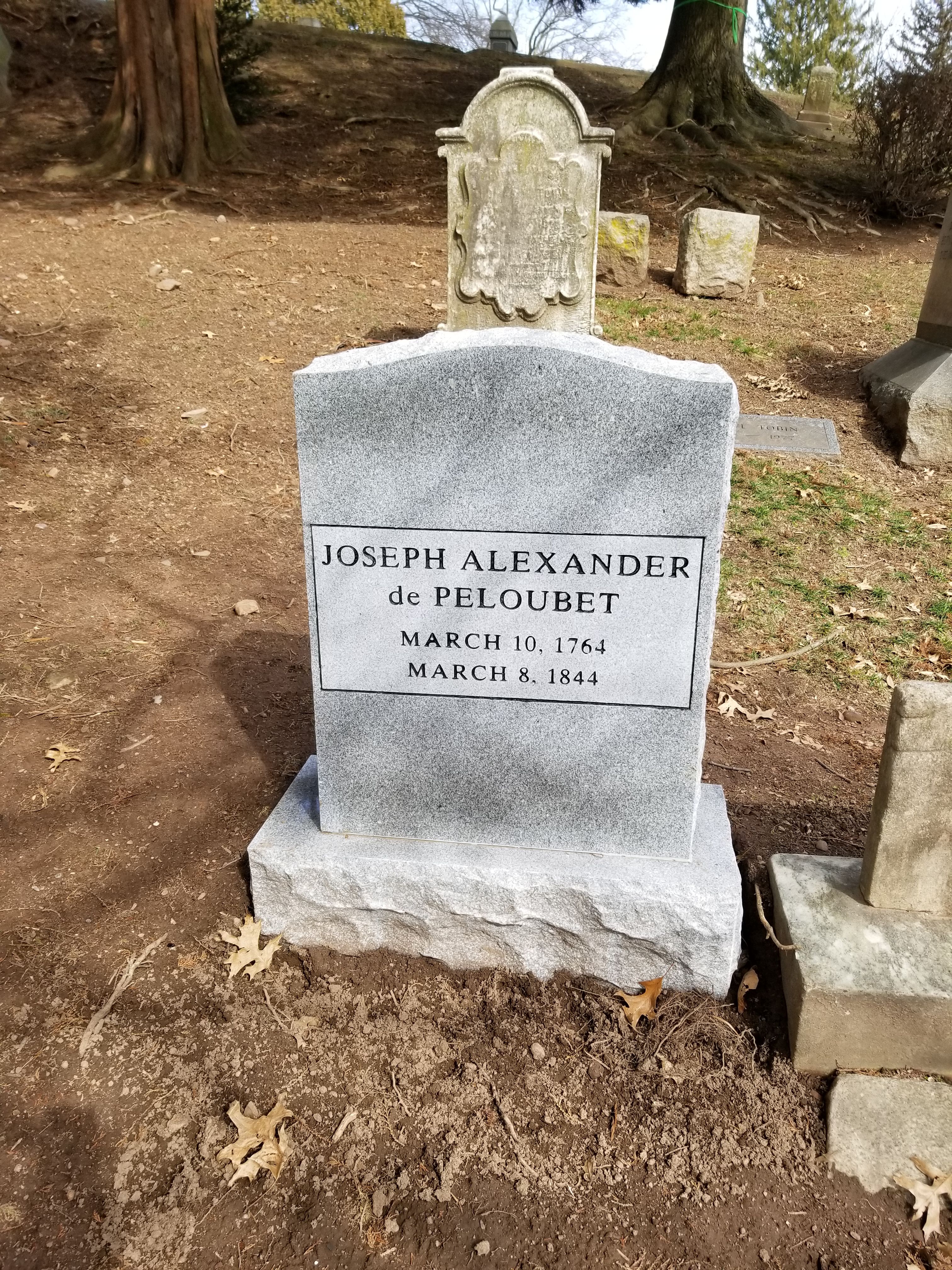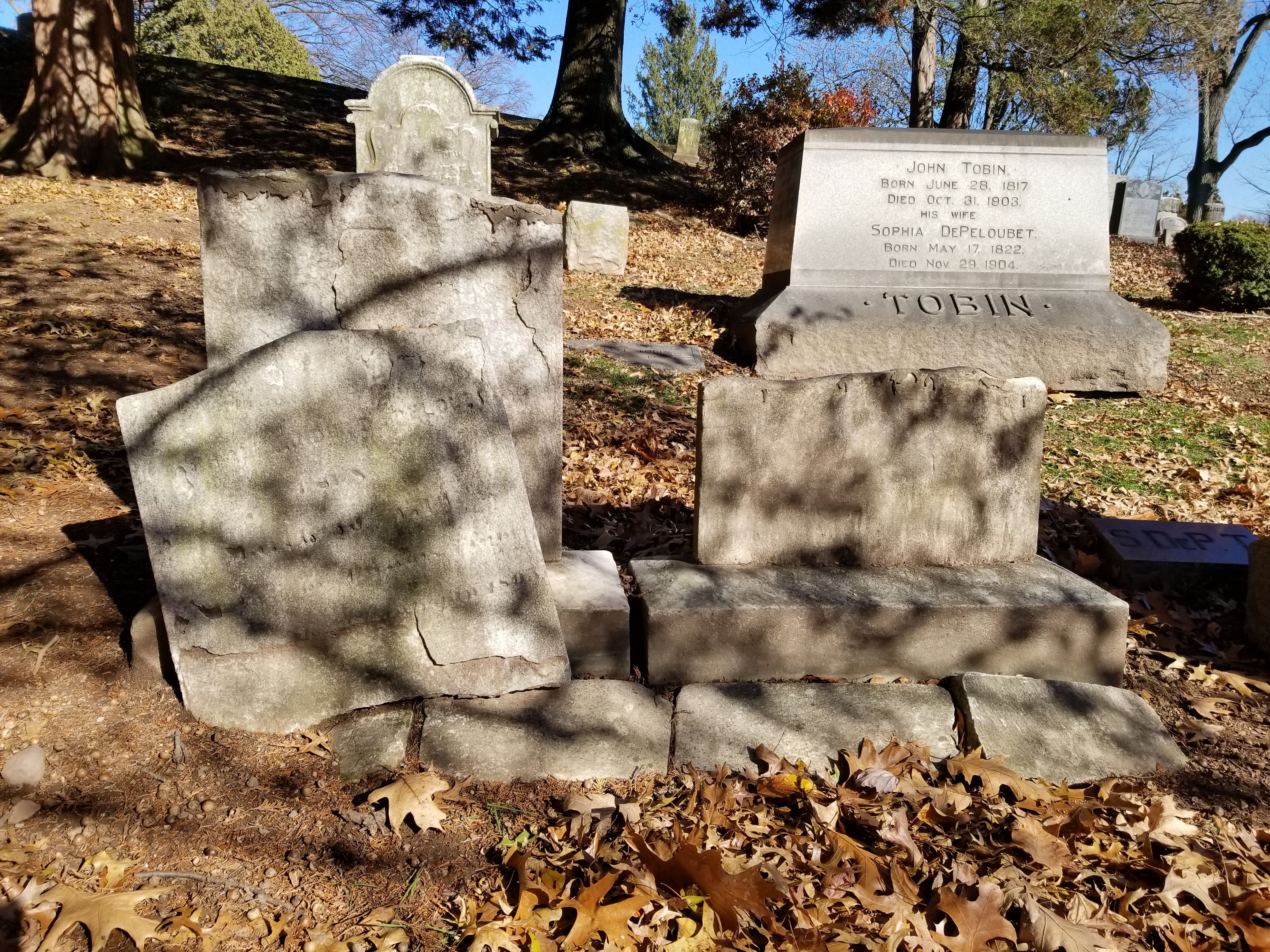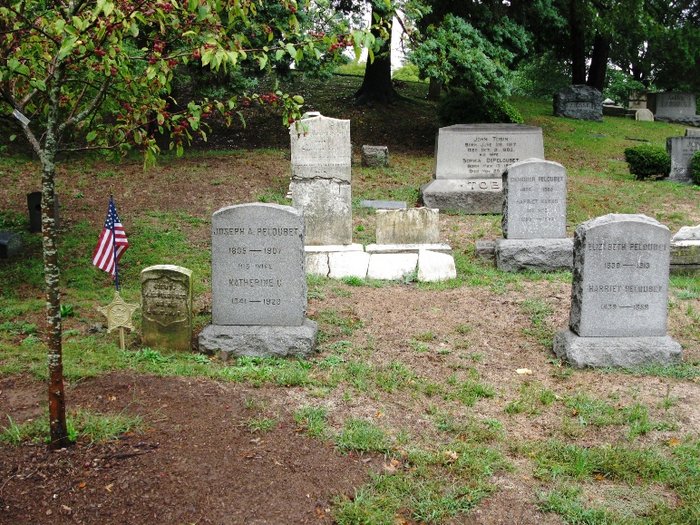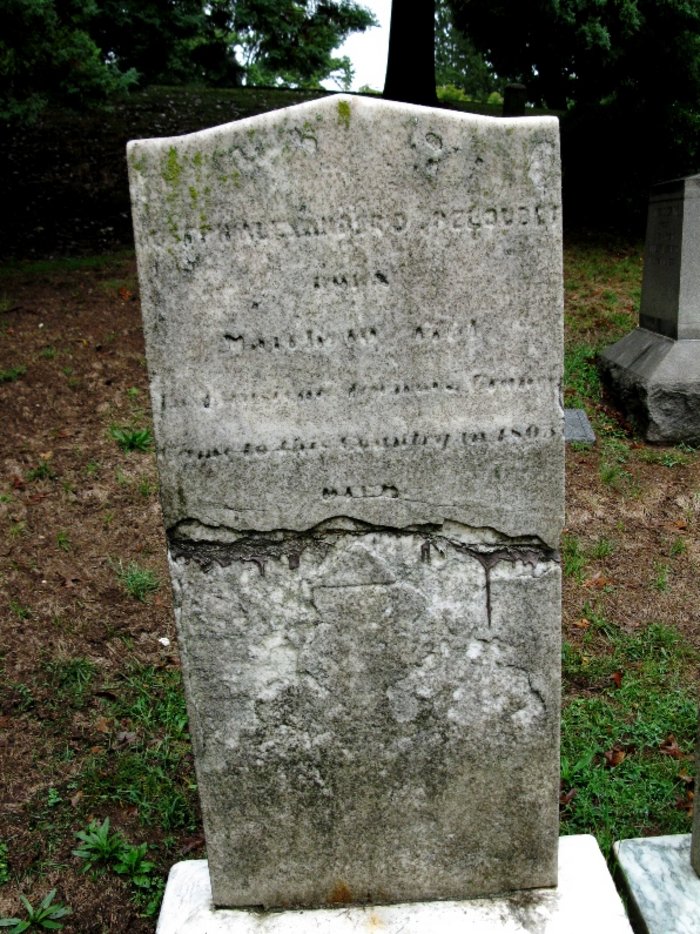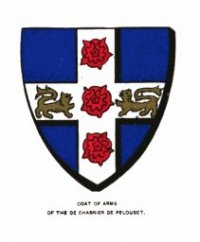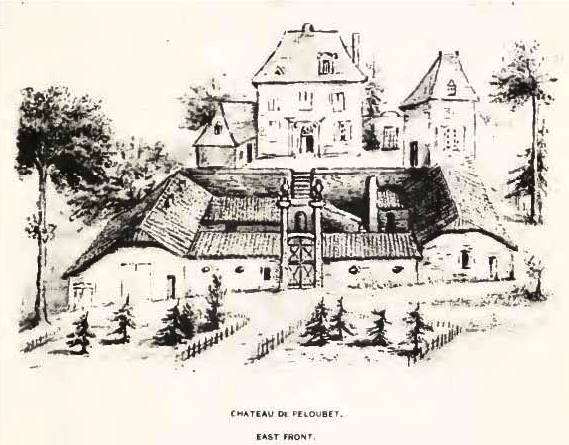ancestor of the Peloubet family in the United States, was born March 4, 1764, in the Chateau de Pelonbet, about a mile from Lauzun, a town of Lot-et-Garonne, about half way between Bordeaux and Agens. He was the eleventh child and fifth son, according to the records in the Mairie of Lauzun, of "Noble Michel Francois de Chabrier, esquire, and Sieurde Peloubet, and Madame Margarite de Vendeuil," the daughter, according to his report, of the Duke or Count of Yendeuil. Two of his brothers served in the bodyguard of King Louis XVI., but Alexander was too short of stature to be received, though lie applied to the king for appointment. Failing in this, he engaged as supercargo to the commercial firm of Dubreuil & Doubret of Bordeaux, and spent his life on the sea, till his twenty-ninth year(1793), making voyages to the West Indies at least a part of the time. Then the French revolution broke out, and he returned home to take part on the side of the king against the uprising of a liberty-loving people. His father was advanced in years at this time, and by choosing a neutral position for a time escaped harm, but was afterward cast into prison by the revolutionists and died there at the age of 95.
For three years Joseph Alexander was in the royal army and he is said to have been engaged in thirteen battles. The division of the army to which he belonged was on the German frontier when the king was beheaded. As soon as the tidings of his downfall reached them the troops were disbanded on the field, and each soldier was left to make his own way to a place of safety. Joseph Alexander escaped into Germany.
But after a time he returned to his home, thinking that the excitement had so far quieted down that he would be safe. It was a mistaken hope.
He was with his family but a short time when he was arrested as an aristocrat and friend of the royalists. He was thrown into prison, tried, and sentenced to the guillotine. The day was fixed for Lis execution. It was to have taken place at sunrise. About midnight, a few hours previous to the fatal moment, the jailer, probably bribed by some friends, came to his cell and silently led him out and placed him in a large room containing only a chair and a table with a lighted candle upon it. So silently and quickly was the exchange made that it seemed like a dream. Coming to himself he was sure that it was intended for his escape. He searched for some secret door in the wall, some loose board in the floor, but in vain. Seating himself in the one chair, he almost gave up hope, when it occurred to him that he had not looked behind the table. He removed the table, and there was a hole in the wall. He plunged into it head foremost, wormed through, and fell some ten feet to the ground, hurting himself somewhat. When he arose he found himself outside the prison, and soon gained the street. He was startled by the approach of a man on horseback who,passing by, said, "Under yonder tree is a passport and a horse." What it meant he could not tell, but determined to go and find out. At the tree he found a passport, a horse, and a peddler's cart, and without further inquiry or delay he mounted and drove away, nothing doubting that it was designed for him. He never knew to whom he was indebted for his escape, but when the sun rose which was to witness his execution he was a goodly distance from his prison, and soon peddled his way into Germany, where he remained several years. Here for a support he learned the trade of making musical instruments like the flute, fife, and clarionet, which business he followed during the most of his subsequent life.
When Napoleon had gained control of the government of France and became First Consul, the policy of the government clianged toward the exiled royalists. Amnesty was declared in 1802, and their estates were returned to emigre nobles. The de Chabrier de Peloubet family obtained from Napoleon certificates of indemnification. The sentence of the republican court was reversed on condition that they continued subjects of the French government. From this condition Joseph Alexander never departed by taking out naturalization papers in this country, although a resident here for forty years.
Besides the home near Lauzun a large estate was left to the family by the decease of an elder brother in the Isle of Bourbon, or as it is sometimes called, the Isle of France. Joseph Alexander was commissioned by the heirs to settle the estate, and accordingly made his plans for a voyage to the Indian Ocean. France had no ships trading there. She was at war with England, so that no Frenchman conld go in an English vessel. The only course was to come to America and sail from one of her ports. He landed in New York in October, 1803. But at this time the English were making those reprisals on our commerce which led to the War of 1812, and our neutral vessels refused to take a French subject on board, because it would not be safe if the English cruisers in their search for contraband articles should find him. After much delay he sent his papers, but they were returned to be translated into English, as the Isle of France had come into their possession and everything must be done in English. He had them translated and sent to Mr. Pepon. the agent of his brother's estate, from whom he received a small sum of money. Nothing further came of it. He was told by Mr.Pepon that so many governmental changes had taken place in the island that affairs were greatly embarrassed and the claims were of little value, and the whole business was disposed of without his receiving any particular account of it. So ended his dream. But the expectation of the inheritance kept him from seeking to make a fortune in this country. But in the meantime he supported himself by practicing the craft he had learned in Germany, and he was one of the earliest manufacturers here of wind instruments made of wood. For a long time he felt sure that the French government would make amends for the loss he sustained, and this hope was fed from time to time by promises made by the French Ambassador.
One of his friends in New York was a Mr. Boyer, a Frenchman who had married an American wife. In their family was a young cousin named Elizabeth Alcott, about twenty years old. She was born in New Haven, Coiin., Nov. 30, 1785, and at ten years of age removed with her parents to Athens, N. Y. on the Hudson. From this place she went to New York City to make her fortune. She found it in M. de Peloubet, who became acquainted with her at the home of Mr. Boyer. He could never speak much English, and she knew next to nothing of French.
But they mutually understood each other, and on May 5,1805, they were married by the Rev. Dr. Miller, then pastor of the Brick Church. New York, and afterward professor in Princeton Theological Seminary. He was 41 years old and she was 20. They lived in various places. Philadelphia, New York, Athens, Albany, Hudson, and Catskill. His motto seemed to be "Push ahead, keep moving on. They had eleven children, whose names are given in another place. The youngest was born when his father was 71 years of age.
In later life he lived in Orange and Bloomfield, N. J., near several of his children. He died in Bloomfield. of old age. Oct., 1844, 80 years old, and was buried in the cemetery there. His widow survived him ten years and died of paralysis, April, 1854, aged 69 years, and rests beside him.
He was a Roman Catholic in religion, and never changed his church relations. His older children were baptized by Catholic priests. But he did not go to the confessional for many years, and made no objection to his children's being brought up Protestants or joining Protestant churches so long as they admitted their baptism to be valid. All of his descendants are Protestants without exception.
[From Joseph Alexander de Chabrier de Peloubet
THE FIRST OF THE NAME IN THE UNITED STATES
WITH THE FUNERAL ADDRESS OF HIS ELDEST SON
L. M. F. Chabrier Peloubet, 1892]
ancestor of the Peloubet family in the United States, was born March 4, 1764, in the Chateau de Pelonbet, about a mile from Lauzun, a town of Lot-et-Garonne, about half way between Bordeaux and Agens. He was the eleventh child and fifth son, according to the records in the Mairie of Lauzun, of "Noble Michel Francois de Chabrier, esquire, and Sieurde Peloubet, and Madame Margarite de Vendeuil," the daughter, according to his report, of the Duke or Count of Yendeuil. Two of his brothers served in the bodyguard of King Louis XVI., but Alexander was too short of stature to be received, though lie applied to the king for appointment. Failing in this, he engaged as supercargo to the commercial firm of Dubreuil & Doubret of Bordeaux, and spent his life on the sea, till his twenty-ninth year(1793), making voyages to the West Indies at least a part of the time. Then the French revolution broke out, and he returned home to take part on the side of the king against the uprising of a liberty-loving people. His father was advanced in years at this time, and by choosing a neutral position for a time escaped harm, but was afterward cast into prison by the revolutionists and died there at the age of 95.
For three years Joseph Alexander was in the royal army and he is said to have been engaged in thirteen battles. The division of the army to which he belonged was on the German frontier when the king was beheaded. As soon as the tidings of his downfall reached them the troops were disbanded on the field, and each soldier was left to make his own way to a place of safety. Joseph Alexander escaped into Germany.
But after a time he returned to his home, thinking that the excitement had so far quieted down that he would be safe. It was a mistaken hope.
He was with his family but a short time when he was arrested as an aristocrat and friend of the royalists. He was thrown into prison, tried, and sentenced to the guillotine. The day was fixed for Lis execution. It was to have taken place at sunrise. About midnight, a few hours previous to the fatal moment, the jailer, probably bribed by some friends, came to his cell and silently led him out and placed him in a large room containing only a chair and a table with a lighted candle upon it. So silently and quickly was the exchange made that it seemed like a dream. Coming to himself he was sure that it was intended for his escape. He searched for some secret door in the wall, some loose board in the floor, but in vain. Seating himself in the one chair, he almost gave up hope, when it occurred to him that he had not looked behind the table. He removed the table, and there was a hole in the wall. He plunged into it head foremost, wormed through, and fell some ten feet to the ground, hurting himself somewhat. When he arose he found himself outside the prison, and soon gained the street. He was startled by the approach of a man on horseback who,passing by, said, "Under yonder tree is a passport and a horse." What it meant he could not tell, but determined to go and find out. At the tree he found a passport, a horse, and a peddler's cart, and without further inquiry or delay he mounted and drove away, nothing doubting that it was designed for him. He never knew to whom he was indebted for his escape, but when the sun rose which was to witness his execution he was a goodly distance from his prison, and soon peddled his way into Germany, where he remained several years. Here for a support he learned the trade of making musical instruments like the flute, fife, and clarionet, which business he followed during the most of his subsequent life.
When Napoleon had gained control of the government of France and became First Consul, the policy of the government clianged toward the exiled royalists. Amnesty was declared in 1802, and their estates were returned to emigre nobles. The de Chabrier de Peloubet family obtained from Napoleon certificates of indemnification. The sentence of the republican court was reversed on condition that they continued subjects of the French government. From this condition Joseph Alexander never departed by taking out naturalization papers in this country, although a resident here for forty years.
Besides the home near Lauzun a large estate was left to the family by the decease of an elder brother in the Isle of Bourbon, or as it is sometimes called, the Isle of France. Joseph Alexander was commissioned by the heirs to settle the estate, and accordingly made his plans for a voyage to the Indian Ocean. France had no ships trading there. She was at war with England, so that no Frenchman conld go in an English vessel. The only course was to come to America and sail from one of her ports. He landed in New York in October, 1803. But at this time the English were making those reprisals on our commerce which led to the War of 1812, and our neutral vessels refused to take a French subject on board, because it would not be safe if the English cruisers in their search for contraband articles should find him. After much delay he sent his papers, but they were returned to be translated into English, as the Isle of France had come into their possession and everything must be done in English. He had them translated and sent to Mr. Pepon. the agent of his brother's estate, from whom he received a small sum of money. Nothing further came of it. He was told by Mr.Pepon that so many governmental changes had taken place in the island that affairs were greatly embarrassed and the claims were of little value, and the whole business was disposed of without his receiving any particular account of it. So ended his dream. But the expectation of the inheritance kept him from seeking to make a fortune in this country. But in the meantime he supported himself by practicing the craft he had learned in Germany, and he was one of the earliest manufacturers here of wind instruments made of wood. For a long time he felt sure that the French government would make amends for the loss he sustained, and this hope was fed from time to time by promises made by the French Ambassador.
One of his friends in New York was a Mr. Boyer, a Frenchman who had married an American wife. In their family was a young cousin named Elizabeth Alcott, about twenty years old. She was born in New Haven, Coiin., Nov. 30, 1785, and at ten years of age removed with her parents to Athens, N. Y. on the Hudson. From this place she went to New York City to make her fortune. She found it in M. de Peloubet, who became acquainted with her at the home of Mr. Boyer. He could never speak much English, and she knew next to nothing of French.
But they mutually understood each other, and on May 5,1805, they were married by the Rev. Dr. Miller, then pastor of the Brick Church. New York, and afterward professor in Princeton Theological Seminary. He was 41 years old and she was 20. They lived in various places. Philadelphia, New York, Athens, Albany, Hudson, and Catskill. His motto seemed to be "Push ahead, keep moving on. They had eleven children, whose names are given in another place. The youngest was born when his father was 71 years of age.
In later life he lived in Orange and Bloomfield, N. J., near several of his children. He died in Bloomfield. of old age. Oct., 1844, 80 years old, and was buried in the cemetery there. His widow survived him ten years and died of paralysis, April, 1854, aged 69 years, and rests beside him.
He was a Roman Catholic in religion, and never changed his church relations. His older children were baptized by Catholic priests. But he did not go to the confessional for many years, and made no objection to his children's being brought up Protestants or joining Protestant churches so long as they admitted their baptism to be valid. All of his descendants are Protestants without exception.
[From Joseph Alexander de Chabrier de Peloubet
THE FIRST OF THE NAME IN THE UNITED STATES
WITH THE FUNERAL ADDRESS OF HIS ELDEST SON
L. M. F. Chabrier Peloubet, 1892]
Inscription
......Came to this country in 1803
Family Members
Advertisement
Explore more
Sponsored by Ancestry
Advertisement
